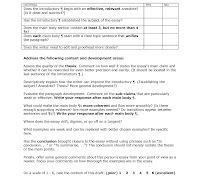 DUE: Before start of October 1st Class
DUE: Before start of October 1st ClassChoose three of the following terms:
Exemplum Metonymy Rhetorical Question Epistrophe Chiasmus Anaphora Amplification Ellipsis Enthymeme Litotes Antithesis Eponym Hypophora Zeugma Climax Conduplicatio Syllepsis Conduplicatio Parallelism Epithet Epanalepsis Isocolon Assonance Aporia Hyperbole Polysyndeton Catachresis Appositive Cacophony Euphemism
- Define each of your three rhetorical devices
- Create two-three examples of each
- Find a “literary” work (poem, essay, novella, film, graphic novel) that employs your three rhetorical devices. You might want to find three separate works, each employing ONE of the devices. Include the example and reference your source(s) (follow MLA style)
- Analyse the effectiveness of the devices.
Add your comment to the end of this post.
NB: Image from Nannygoathill.























